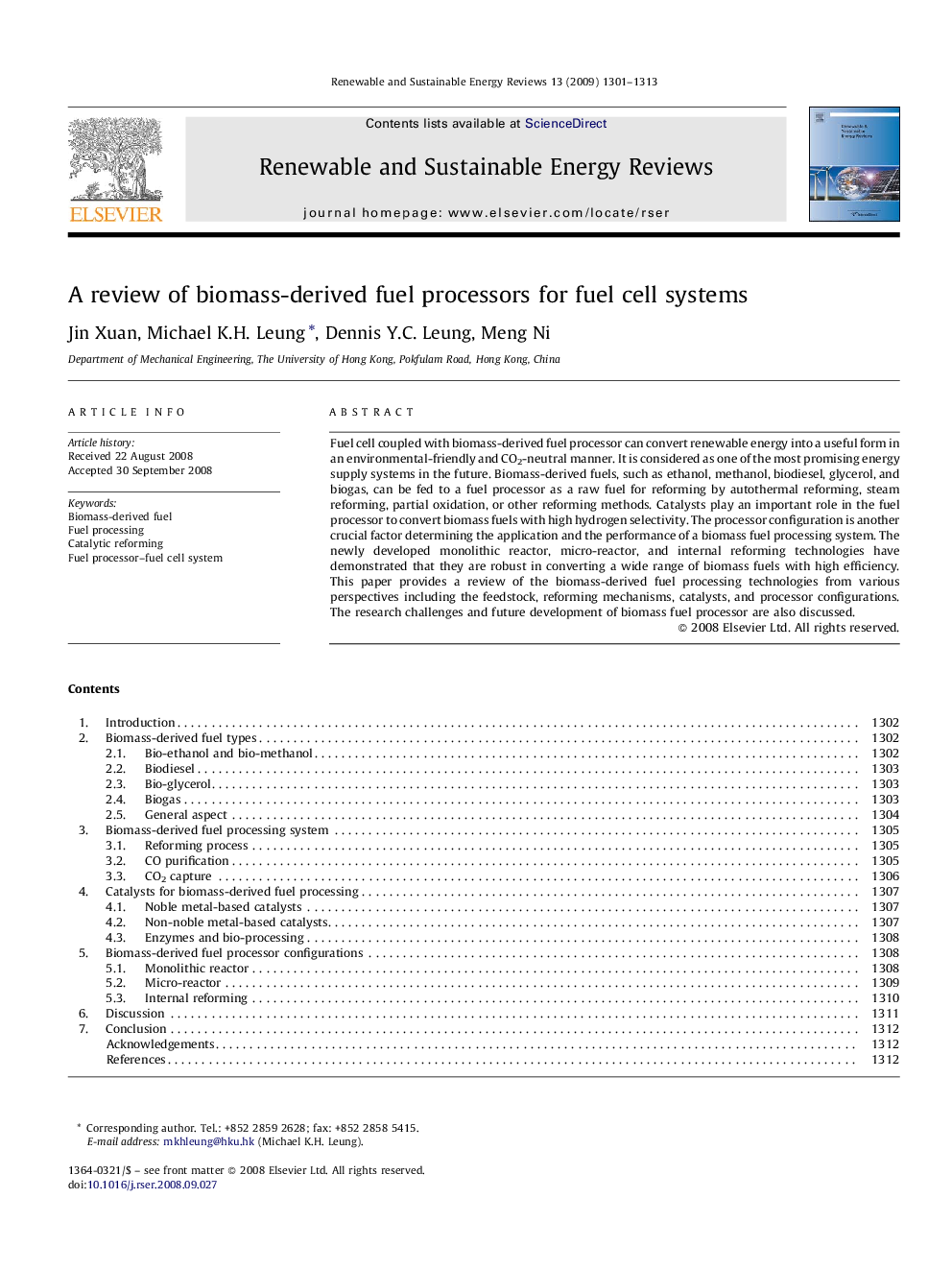| Article ID | Journal | Published Year | Pages | File Type |
|---|---|---|---|---|
| 1752112 | Renewable and Sustainable Energy Reviews | 2009 | 13 Pages |
Fuel cell coupled with biomass-derived fuel processor can convert renewable energy into a useful form in an environmental-friendly and CO2-neutral manner. It is considered as one of the most promising energy supply systems in the future. Biomass-derived fuels, such as ethanol, methanol, biodiesel, glycerol, and biogas, can be fed to a fuel processor as a raw fuel for reforming by autothermal reforming, steam reforming, partial oxidation, or other reforming methods. Catalysts play an important role in the fuel processor to convert biomass fuels with high hydrogen selectivity. The processor configuration is another crucial factor determining the application and the performance of a biomass fuel processing system. The newly developed monolithic reactor, micro-reactor, and internal reforming technologies have demonstrated that they are robust in converting a wide range of biomass fuels with high efficiency. This paper provides a review of the biomass-derived fuel processing technologies from various perspectives including the feedstock, reforming mechanisms, catalysts, and processor configurations. The research challenges and future development of biomass fuel processor are also discussed.
